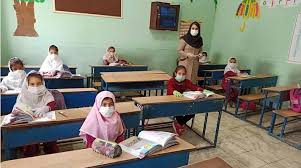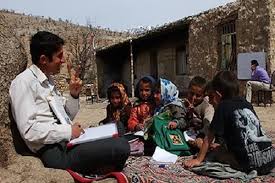Examining the problems and challenges of teachers in rural schools

Teachers in Afghanistan’s rural schools face many problems and challenges that have profound effects on the quality of education in these areas. These problems and challenges have been examined in the following:
- Lack of facilities and infrastructure
- Lack of educational equipment: Many rural schools lack basic educational facilities such as textbooks, blackboards, tables and benches, and laboratory equipment.
- Inappropriate buildings: Schools in rural areas are often held in non-standard and unsafe buildings that do not have suitable conditions for teaching and learning.
- Low salaries and inappropriate working conditions
- Inadequate salaries: Teachers in rural areas usually receive lower salaries than their urban counterparts, which reduces their motivation and job satisfaction.
- Difficult working conditions: Teachers in rural areas face difficult working conditions, including long and difficult journeys to reach the workplace and lack of proper amenities.
- Lack of teacher training
- Insufficient training: Many teachers in rural areas lack sufficient and specialized training for teaching. Lack of access to training courses and empowerment workshops affects the quality of teaching.
- Lack of professional support: Teachers in rural areas are often deprived of professional support and educational advice, which can lead to a decrease in the quality of teaching.

- Insecurity and geographical problems
- Insecurity: The rural areas of Afghanistan are more affected by insecurity and the activities of armed groups, which leads to the closure of schools and reduced attendance of teachers and students.
- Geographical problems: Difficult geographical conditions and the lack of proper transportation infrastructure make it difficult for teachers and students to access schools.
- Cultural and social challenges
- Cultural barriers: In some rural areas, local culture and attitudes may prevent girls and even boys from studying. Teachers face cultural and social challenges that require special approaches to solve them.
- Lack of parental support: The lack of parental support and cooperation in children’s education can be a big challenge for teachers, because it has a direct effect on the motivation and academic progress of students.
- Poverty and economic problems
- ** Widespread poverty **: Poverty in rural areas directly affects education. Families are unable to pay for education and children are forced to work to support the family, which leads to dropouts and reduced school attendance.
Suggested solutions
- Improving infrastructure and educational facilities: investing in building and renovating schools, providing educational equipment and creating suitable conditions for teaching and learning.
- Increasing teachers’ salaries and working conditions: Improving teachers’ salaries and working conditions to increase their motivation and job satisfaction.
- Training and empowerment of teachers: providing training courses and empowerment workshops to increase the quality of teaching and professional support of teachers.
- Increasing security and improving transportation: Creating safe conditions for educational activities and improving transportation infrastructure for easier access to schools.
- Cultural and social programs: Implementation of educational and cultural programs to change local attitudes and increase parental support for children’s education.
- Economic support: providing financial aid and support to needy families to reduce economic pressure and encourage children’s education.
The implementation of these strategies can help improve the situation of teachers in rural schools in Afghanistan and increase the quality of education in these areas.